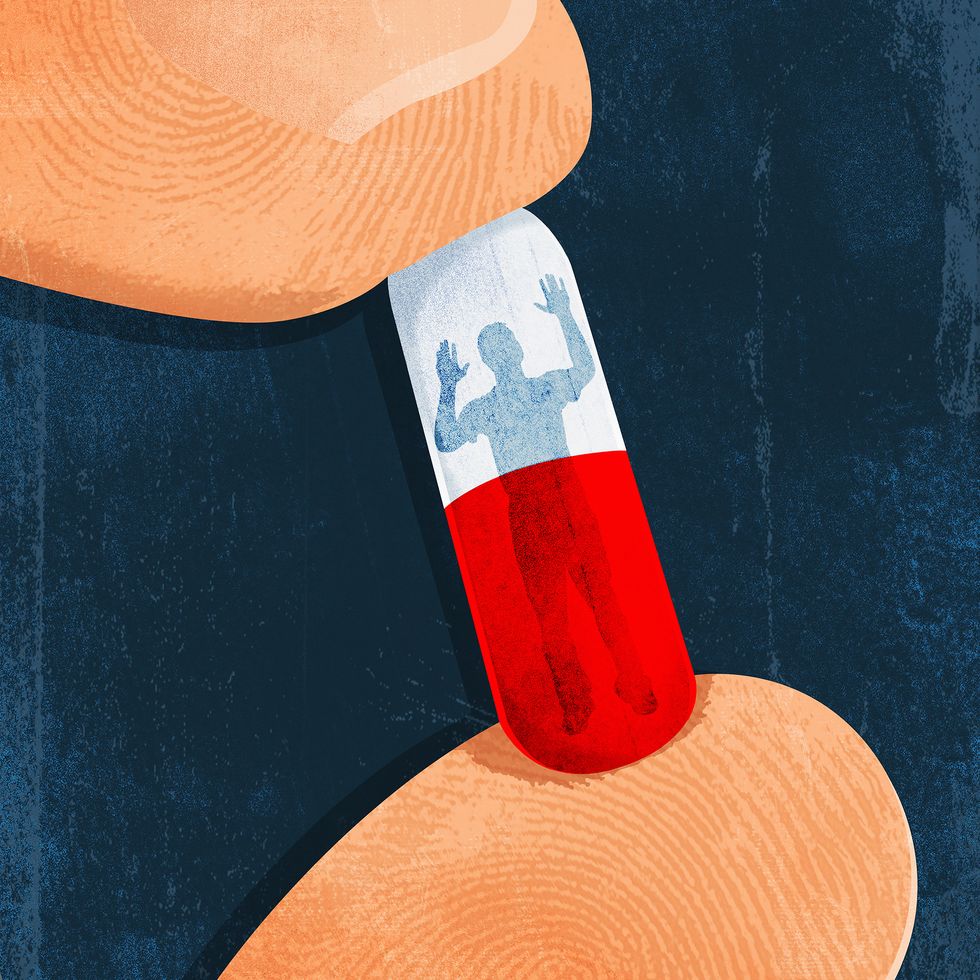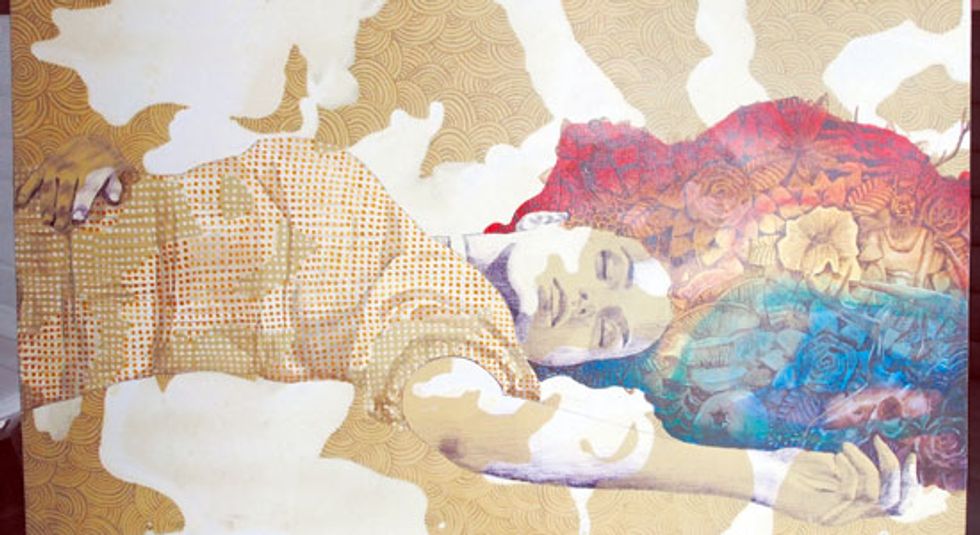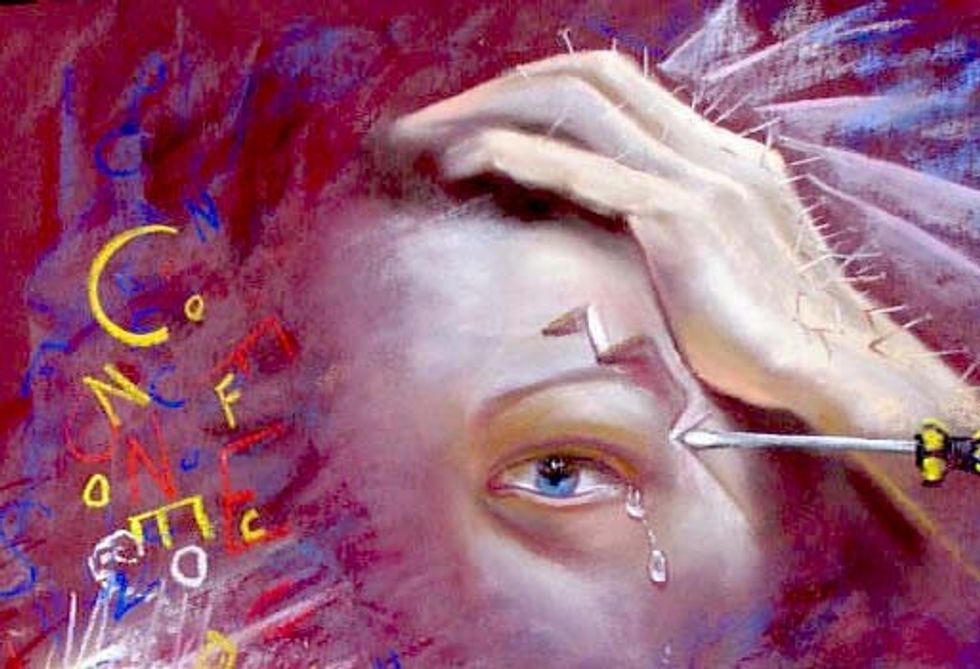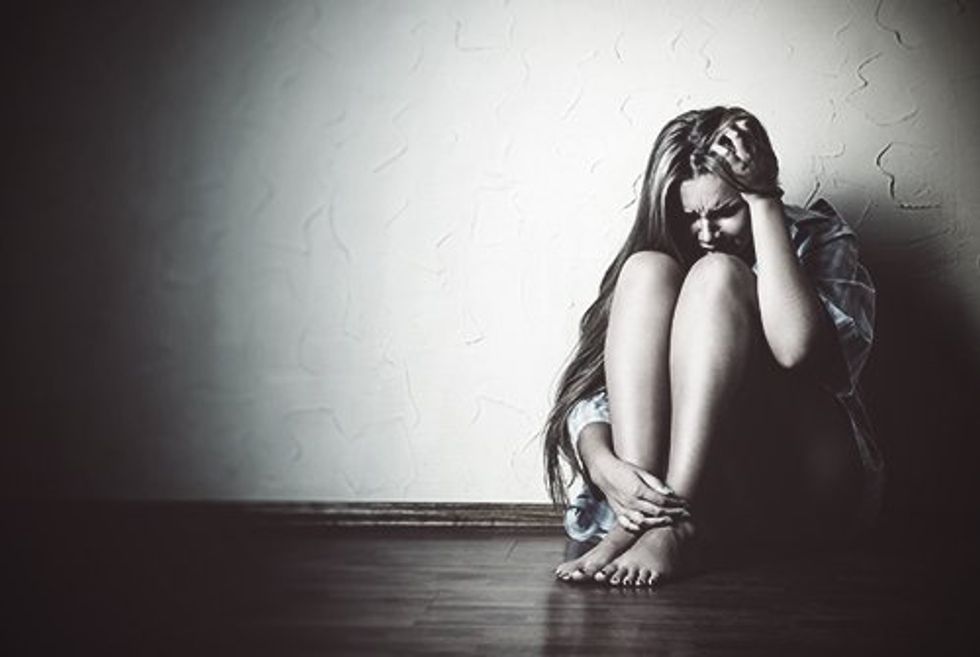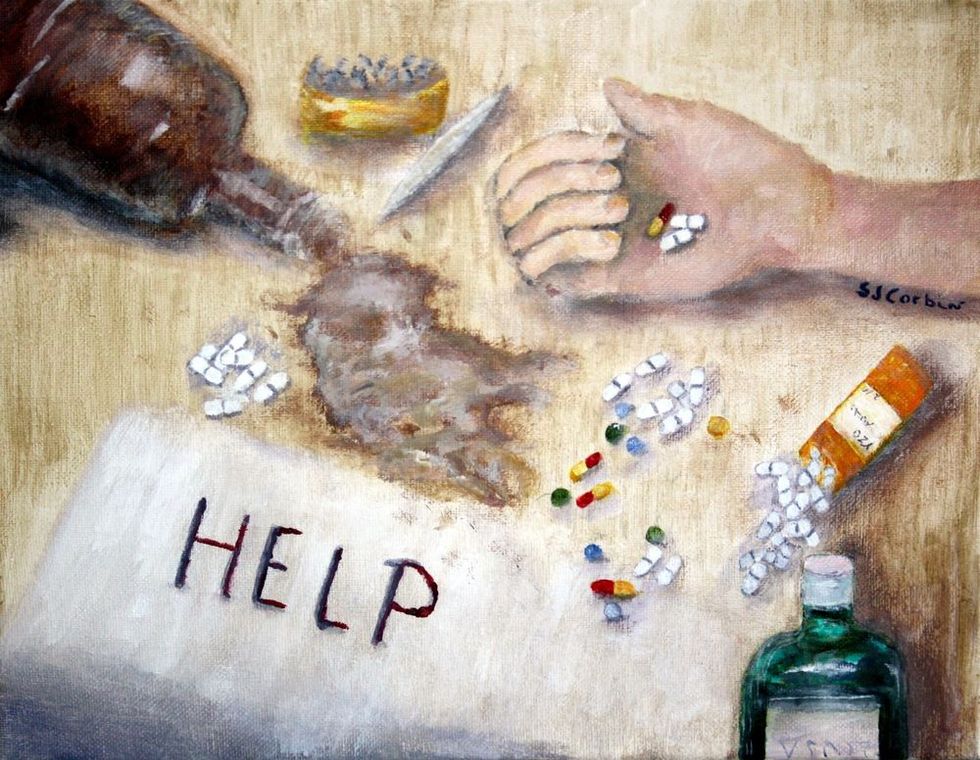"Is drug addiction a disease, or a choice?"
Quite frankly, it's none of your business. But the dehumanization of the poor and mentally ill has been the fodder of debate for decades- because if it's their "choice," then they deserve to starve in the streets, be relegated to asylums, and die alone. There are many aspects of drug addiction where "choice" comes in to play. Much like mental illness, it's a complex variety of factors which result in symptoms and eventually a disease-like situation.
I want to tell you about the point where choice breaks down.
When you are not of sound mind, you do not have the luxury of "choices." You can't perceive reality as it is. You can't weigh your options properly. You are chemically swept up in a situation beyond your control. Your body is in survival mode, and something deeper in the psyche has misfiled and mislabeled what those means of survival are and the choices we must make to fulfill them.
On that note, I have something to say to the author of "Stop Calling Your Addiction A Disease":
You don't seem to understand either "disease" or addiction.
"Let me take you into a cancer ward," you say.
Let me take you into a crack house.
Tell me one person of sound mind would choose that life.
Tell me one person who would choose to abandon all their friends, steal their parents' possessions and pawn them for drug money, live without consistent food or family, do obscene acts to get a fix, sell their bodies, sell their souls, sell each minute of their lives, end up homeless and untouchable till they eventually die alone- tell me one person who would choose this.
Tell me one person who is of sound mind dreams of this for their future. Tell me one person like this is truly happy.
"The question is frequently asked: Why does a man become a drug addict?
The answer is that he usually does not intend to become an addict. You don’t wake up one morning and decide to be a drug addict....
I tried it as a matter of curiosity. I ended up hooked. If you have never been addicted, you can have no clear idea what it means to need junk with the addict’s special need. You don’t decide to be an addict. One morning you wake up sick and you’re an addict."
― William S. Burroughs, Junky
Tell me that person is selfish.
Tell me that person does anything, any one thing for themselves, or do they not rob themselves of food, strip themselves of pride, defile their humanity, destroy the things they love the most, and live every waking minute of their lives the total slave of a parasitic entity exploiting them?
Is anything they do to their own best interest? Or at any chance to better their lives and free themselves, does the beast which enslaves them not rob them again, thrashing its teeth endlessly to emaciate its possessor's soul and to shatter every interaction or hope of being free, so that the slave is but even more bound by the beast for eternity, leaving pain and agony unfathomable everywhere it touches?
Imagine you have a fate just as bad as cancer, but it also kills everyone you love, and deep down, you know it is your fault. But you don't know how to stop or heal or free yourself in any way, so you just try to survive, until you yourself eventually become the cancer.
"Treating addiction as a disease provides a clinical framework for helping these people... It doesn't take away from the shame they feel. It doesn't normalize addiction. It doesn't absolve them of responsibility in any way. It just offers a path to help."
Cancer Sucks. Addiction Sucks Too.
The author of "Stop Calling Drug Addiction A Disease" does not understand what addiction means.
"I'm addicted to reading" or "I'm addicted to makeup" are not the same as "I am addicted to heroin," and do not presume to know differently.
Do not insult those who have dealt with these experiences firsthand by projecting your moral superiority onto the experiences and pain of others.
Cancer sucks. We've got that down.
Addiction sucks too.
If you're not suggesting encouragement or understanding in either way, then quite frankly, close your mouth.
In Defense Of The Untouchables
Pain is not a contest. Our medical definitions of "disease" are socially constructed and are not always capable of explaining all facets of the human experience.
If you're worried about people feeling sorry for drug addicts- empathy for them does not take away from empathy for other people.
Or if you're just here to judge people in pain, you're in good company. Every drug addict knows your narrative by heart. They are bad, broken, they have made poor choices, they brought this on themselves, they deserve no sympathy, they deserve what they get, they ought to feel shame.
They know this. There's nothing new or original about what you are saying. It's the oldest opinion in the book, matter of fact.
But it's not about your opinion, and it's not about right or wrong.
Treating addiction as a disease (which is always, always accompanied by group counseling and therapy) simply provides a clinical framework for helping these people. It doesn't take away from the shame they feel. It doesn't normalize addiction as a great or okay thing. It doesn't absolve them of responsibility in any way. It just offers a path to help.
The framework of "disease" allows rehabilitative solutions which can help addicts recover. It's part, and just part, of a solution, where no concrete or large-scale successful ones existed before. Addiction shouldn't be a problem. It's a problem that, hopefully, can be solved. As epidemics of drug addiction grow, we need that framework. And they need a path to help.
Cause calling them bad people hasn't worked thus far.

